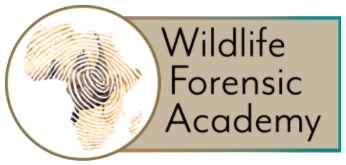Newsletter: 5th Edition
Bridging Education and Conservation Through Innovation: An Interview with Professor Désirée van Gorp on ‘Rhino Rescue’
Interview conducted by and authored by: Lisanne Schoonebeek
Prof. Dr. Désirée van Gorp, professor of International Business at Nyenrode Business University, has found a unique way to combine her passion for wildlife conservation with her academic background: by developing Rhino Rescue, an interactive educational game designed to engage young people with the challenges of protecting our planet.
The game is more than just a digital pastime. It serves a dual purpose - raising awareness about wildlife conservation and generating funds for the Wildlife Forensic Academy (WFA), a pioneering institution committed to protecting biodiversity through forensic science.
A Natural Progression
Désirée’s involvement with the WFA reflects her deep-rooted commitment to making a positive impact on the natural world. Her academic interest in ecosystem thinking aligns closely with the Academy’s mission.
She explains her vision for the game:
“My big dream is for the game to be integrated into a broader educational platform. We are already writing case studies on the WFA for universities and schools, and it would be fantastic if Rhino Rescue could be part of large-scale educational initiatives.”
Education First, Entertainment Second—But Both Matter
Rhino Rescue is fundamentally an educational tool. It introduces players - primarily children, but not exclusively - to global environmental challenges through a playful, engaging format.
Despite its name, the game goes far beyond rhino conservation. It explores the wider impact of human actions on ecosystems and encourages players to think about their role in shaping the planet’s future.
“Rhino Rescue is a playful yet meaningful way to introduce children to global environmental challenges.”
Why a Game?
The choice to develop a game was deliberate. Research shows that playful learning is often more effective than traditional methods, particularly for younger audiences. Rhino Rescue harnesses the power of gaming to deliver complex messages in an accessible and entertaining format.
Broadening the Audience
Though originally aimed at children, Rhino Rescue has also resonated with other age groups during its testing phases. Désirée hopes that the game will appeal to a wide audience, helping to raise awareness across generations.
From Concept to Launch
The development of Rhino Rescue has been a collaborative and iterative process. Multiple test runs with different age groups helped shape the game, with constant feedback ensuring it remains both engaging and educational. A final testing phase is scheduled for the end of March, ahead of the official launch.
We welcome your feedback!
Access to the game:
Please note that donations are not yet enabled in this release.
Feedback Form:
A Mission-Driven Approach
Through projects like Rhino Rescue, Prof. Dr. Désirée van Gorp combines her academic expertise with a lifelong passion for conservation. By supporting the mission of the Wildlife Forensic Academy, she hopes to inspire a new generation to protect and cherish the natural world.
Get connected!
If you love WFA’s updates and developments as much as we do, we have good news for you! WFA is now on YouTube, bringing you even closer to the action. From webinars to behind-the-scenes looks at our courses and fieldwork our channel is the perfect place to dive deeper into the world of wildlife forensics.
Are you an avid podcast listener? Add us to your daily Spotify listen.
Round up of WFA Community Week 2025
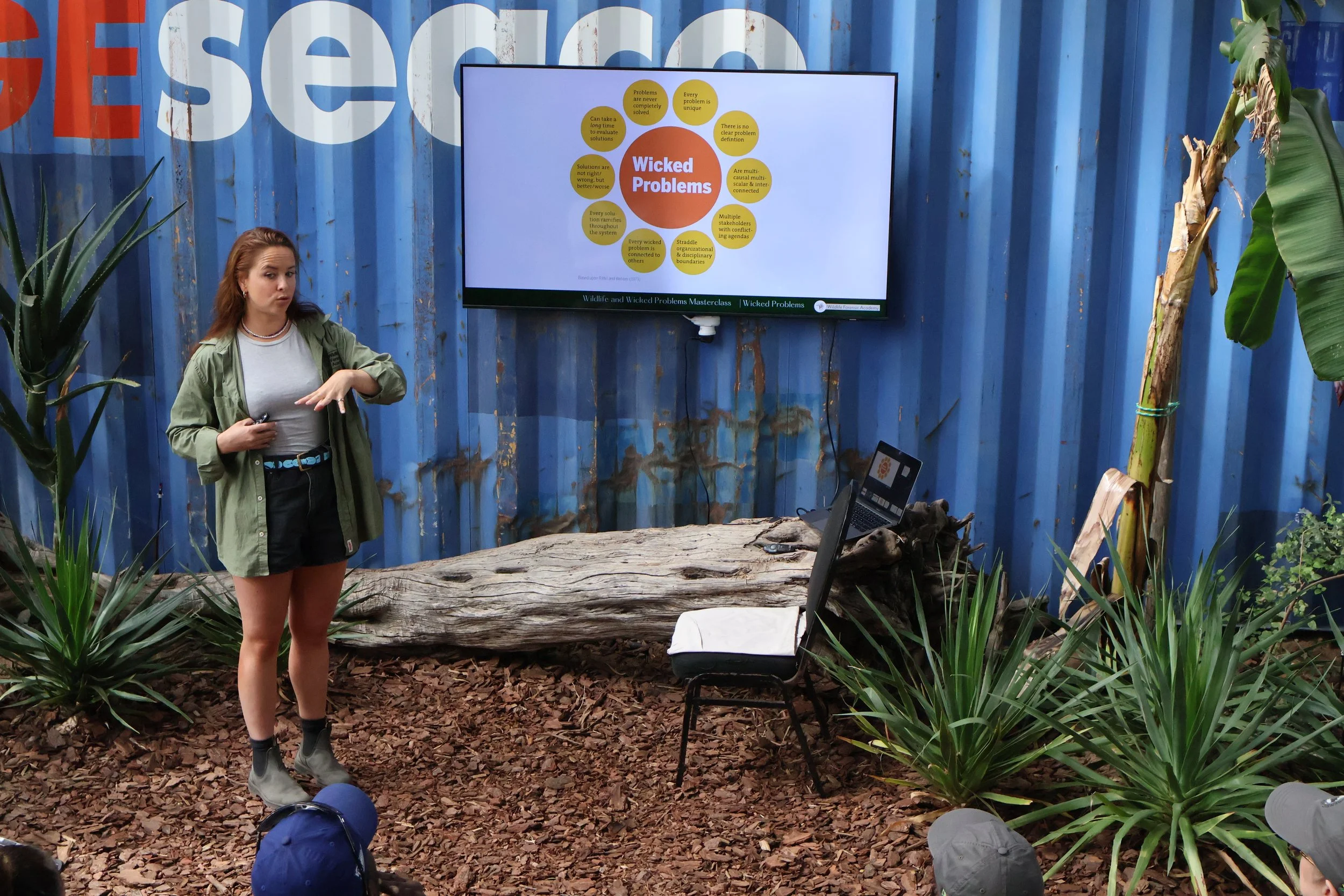
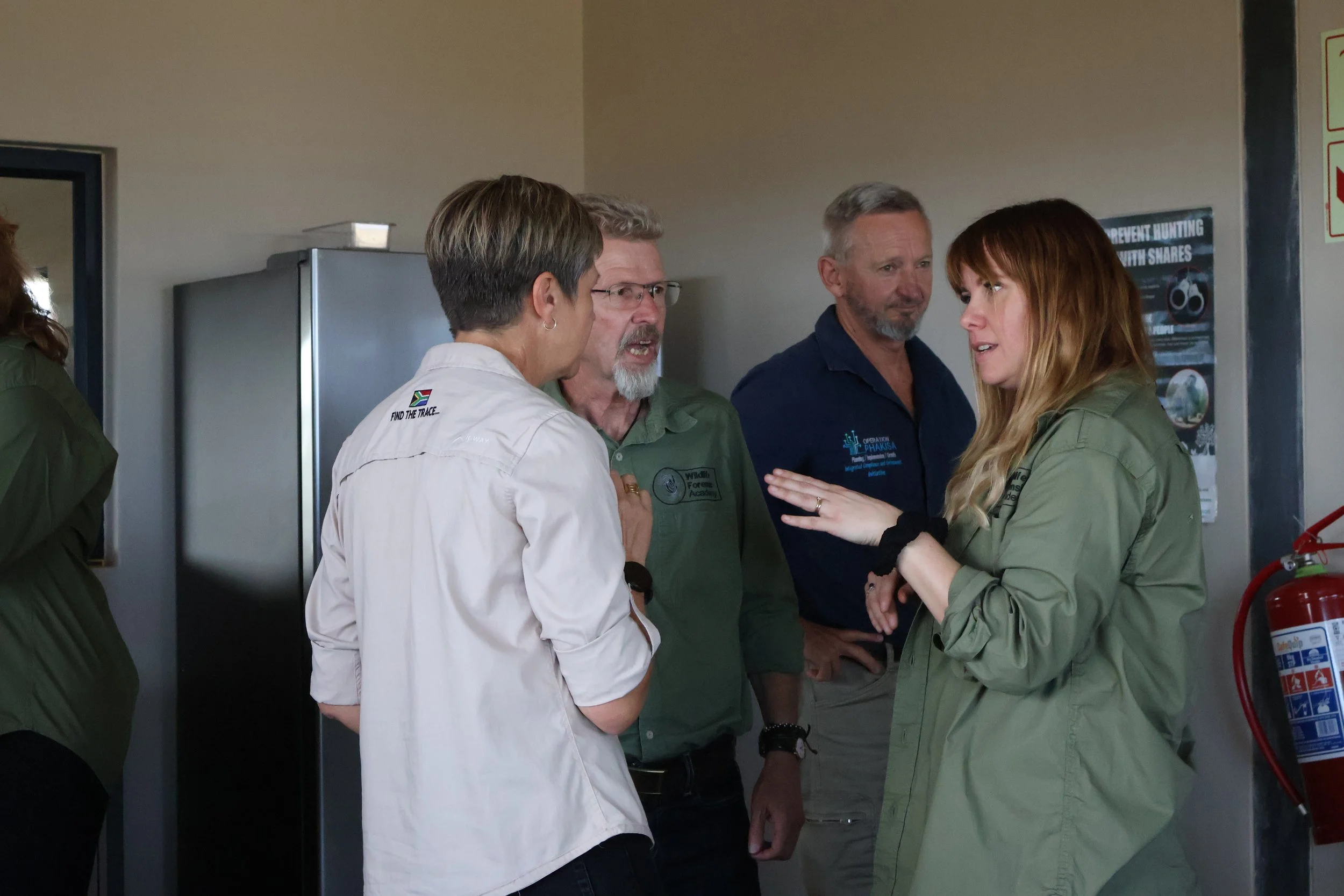
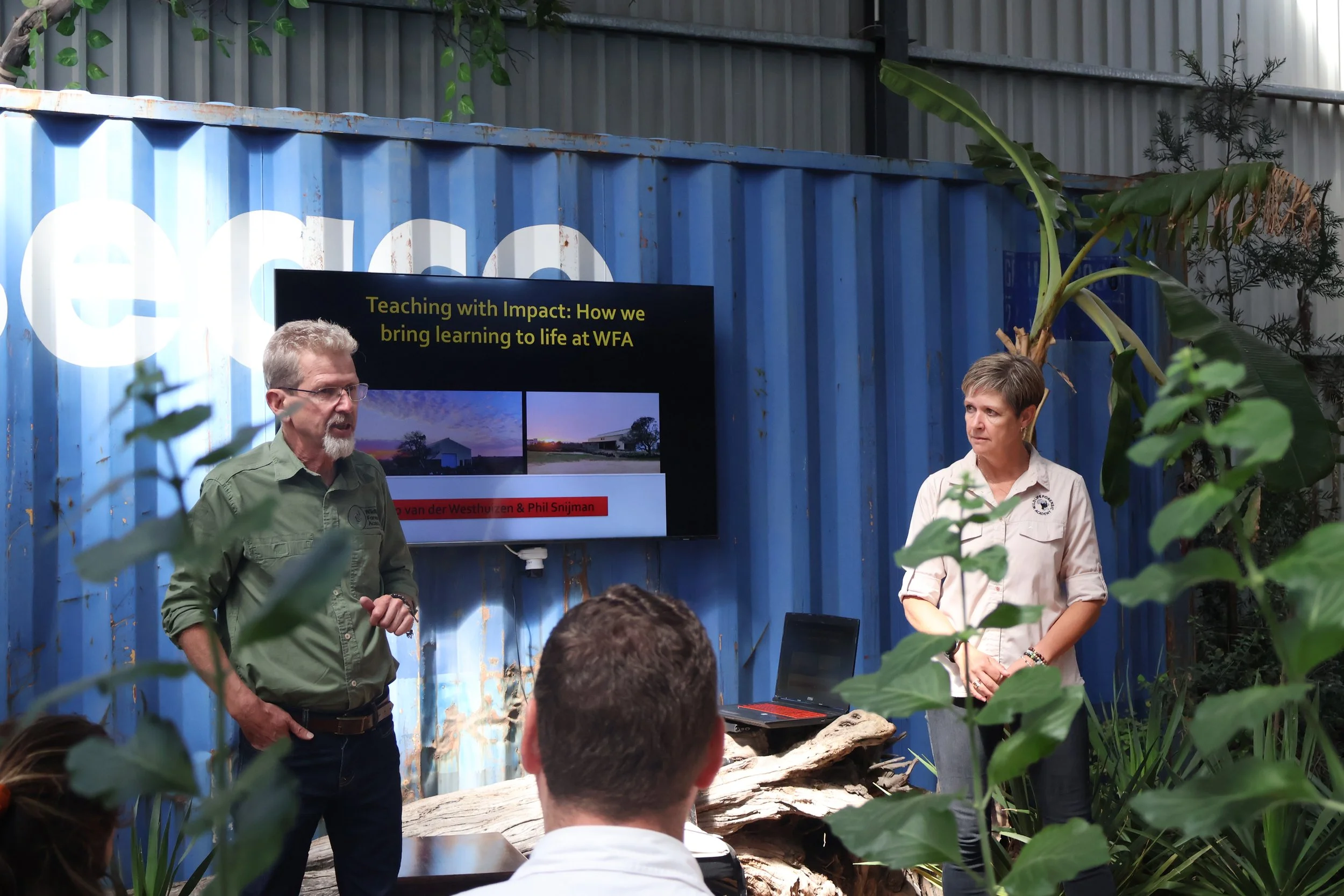
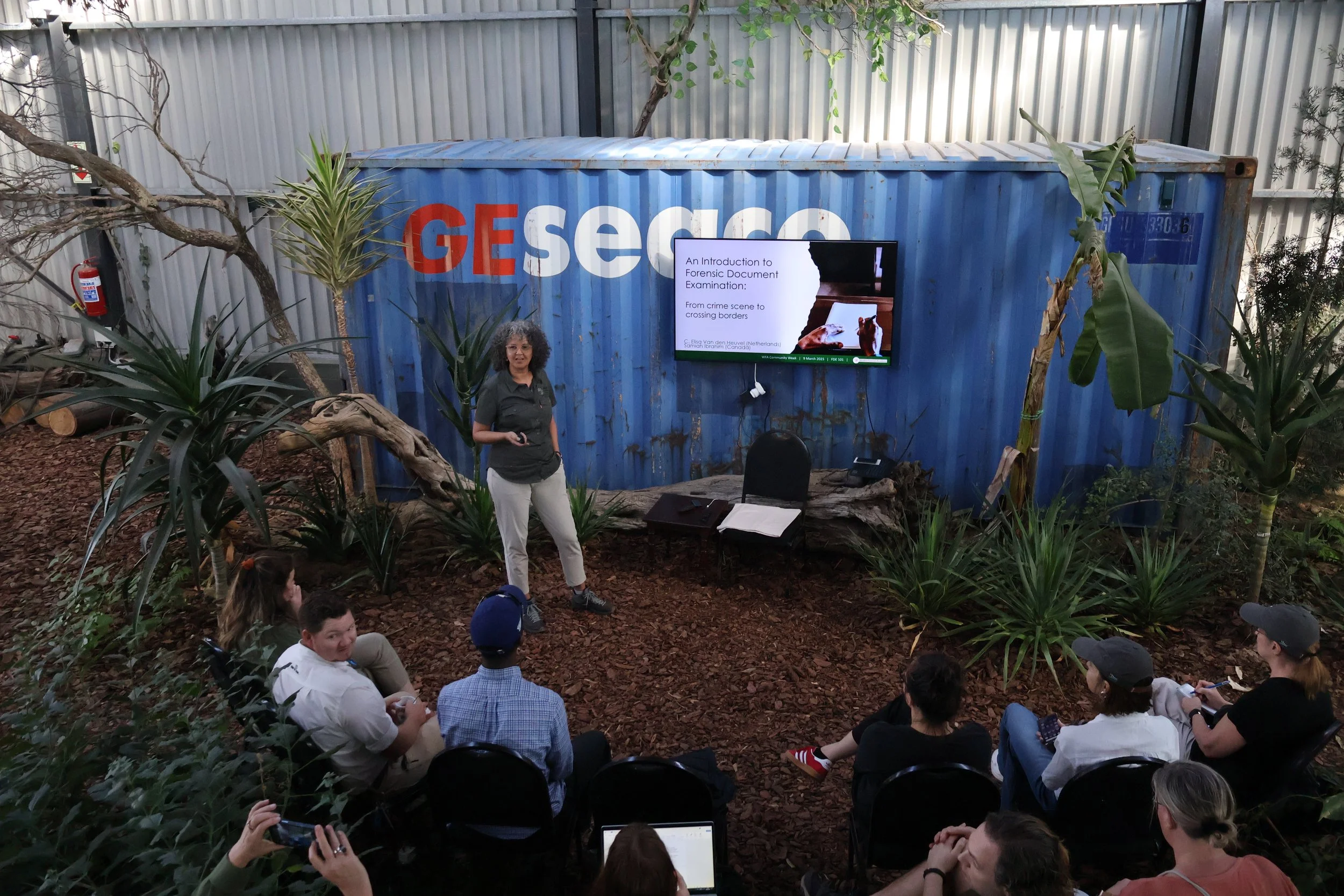
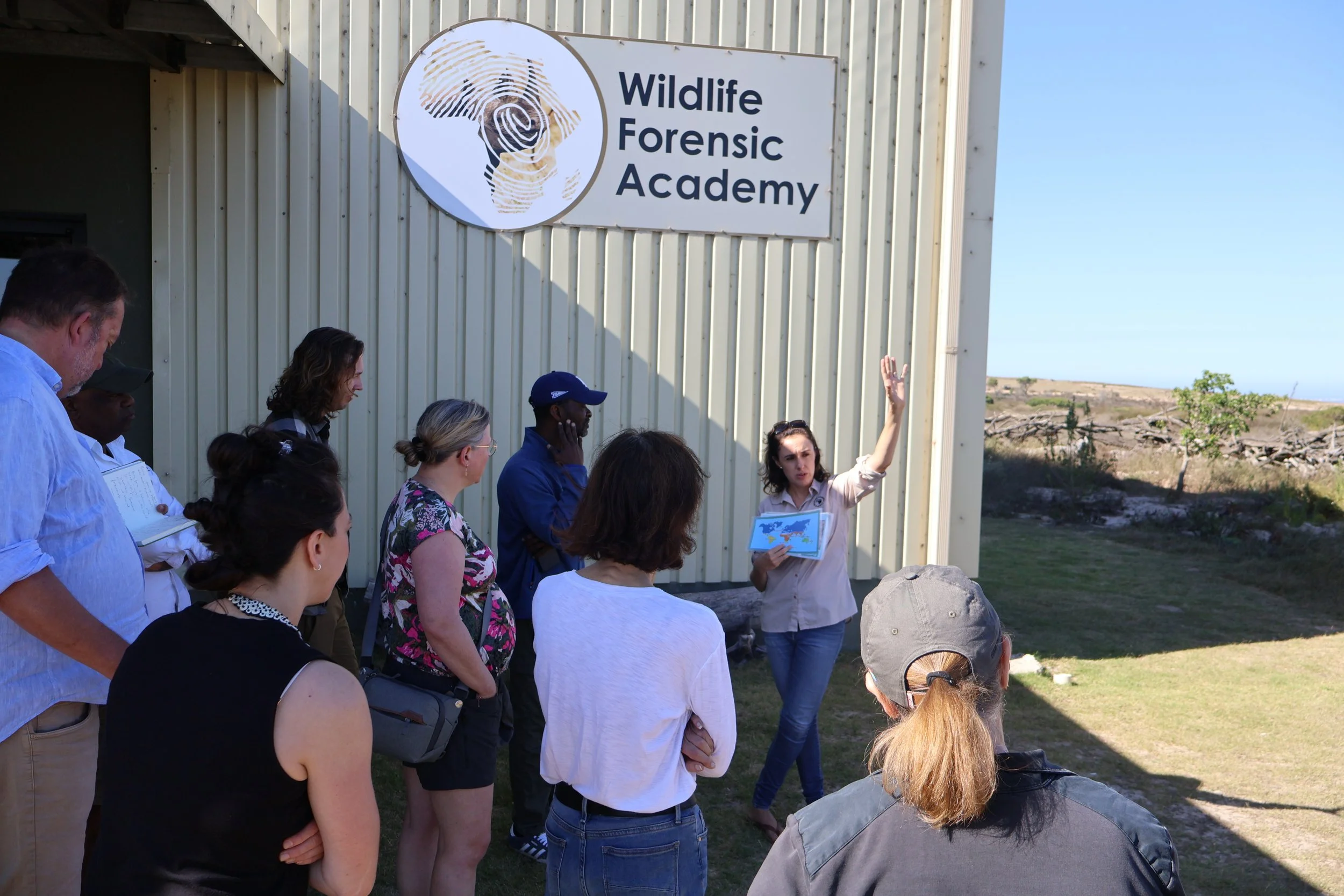

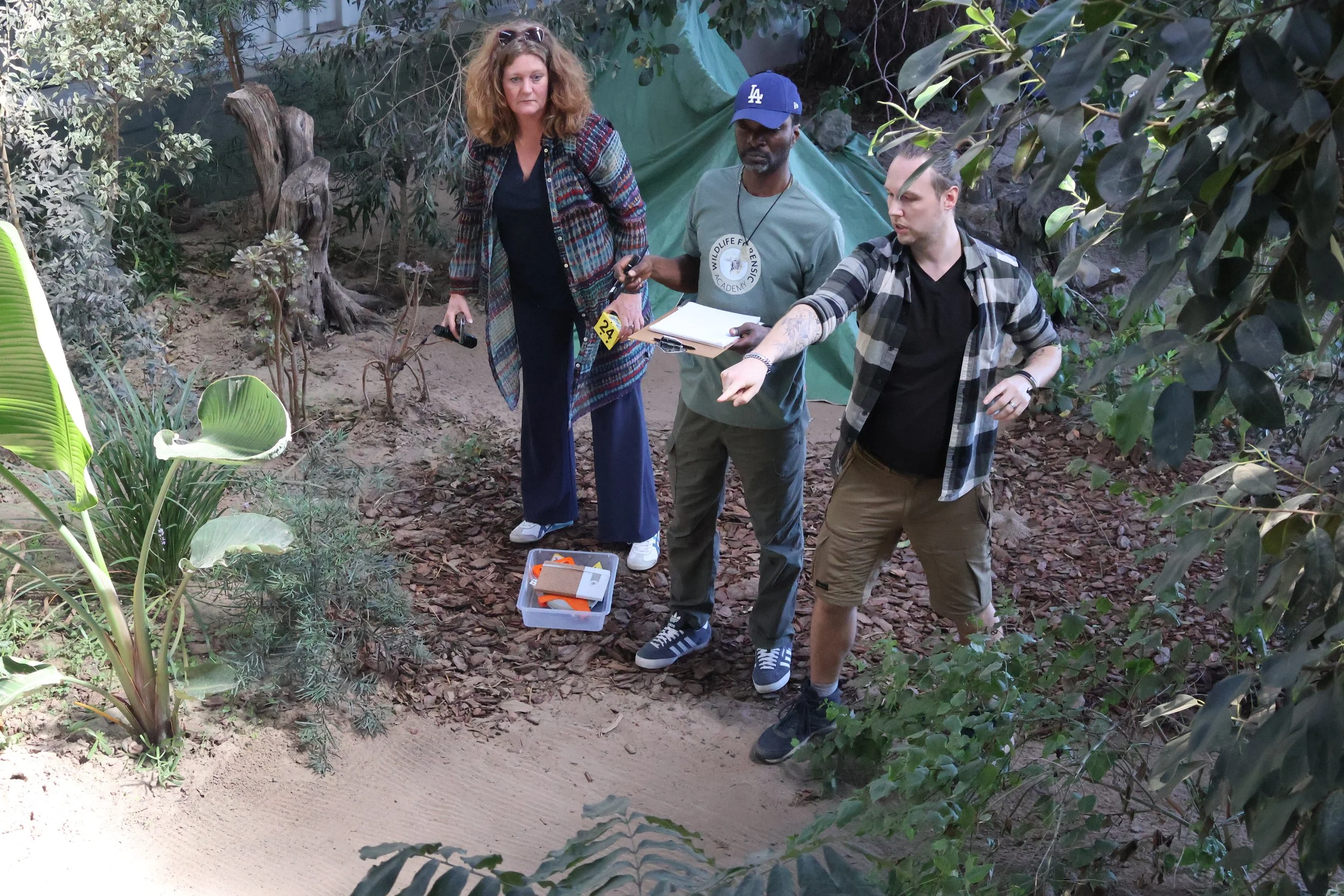
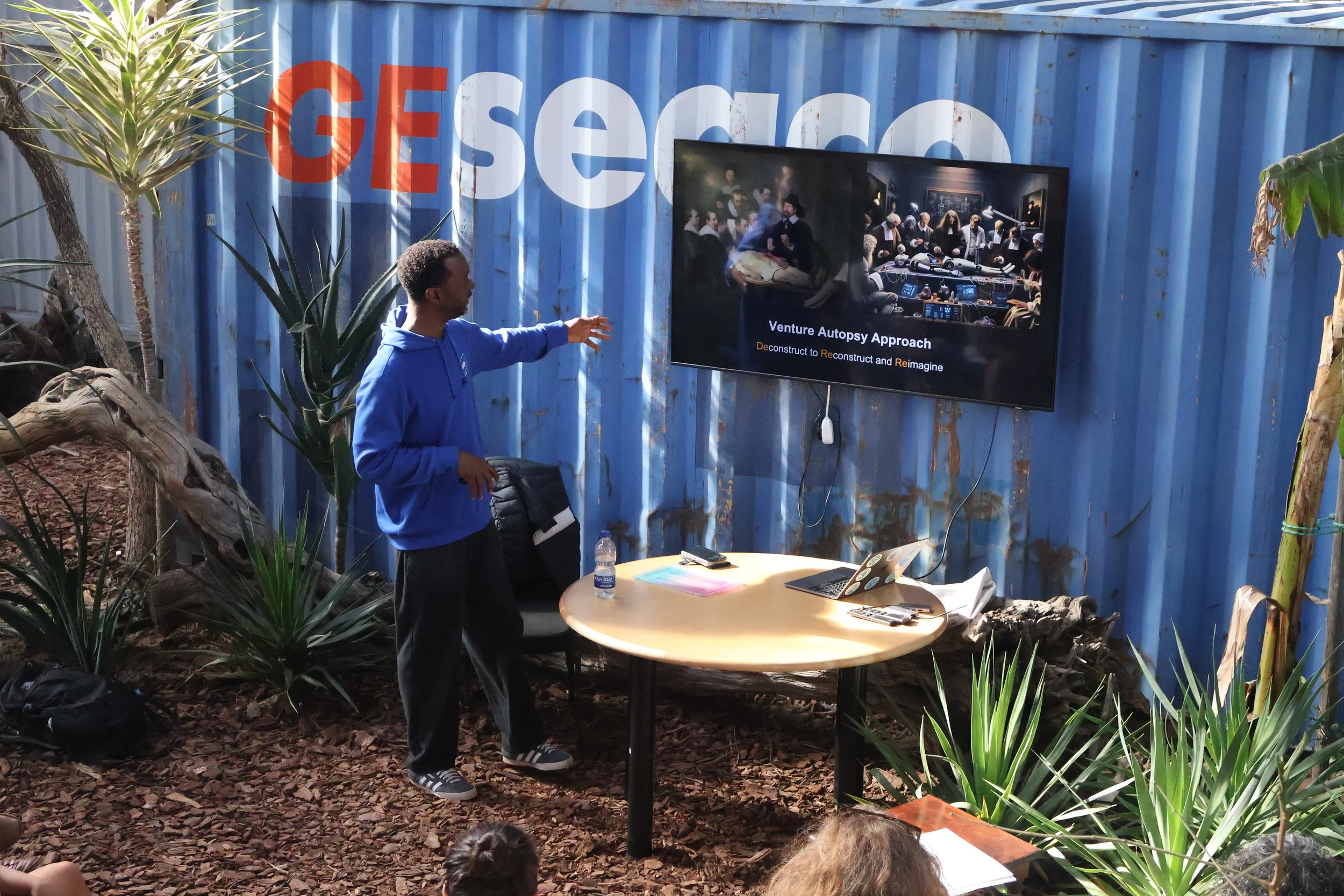
From 7-12 March, the WFA hosted an incredible Community Week, and what an inspiring and productive week it was! The event brought together both local and international representatives from current and prospective partnering organisations, universities, and other key stakeholders in the field of wildlife forensics and conservation. The energy was electric, with passionate individuals eager to collaborate, share insights, and discuss ways to improve wildlife forensics and wildlife crime prosecution. The shared goal of advancing these fields through education, training, research, and innovation set the stage for meaningful exchanges and future collaborations.
Throughout the week, several informative and engaging workshops took place, designed to provide attendees with core knowledge and context in various crucial areas. Landi Retief led an insightful session on Ecology, while Jan Marx hosted an in-depth workshop on Tracking. Petro van der Westhuizen and Phil Snijman and Claire Gwinnett shared their expertise on Wildlife Crime Scene Management, equipping participants with the essential skills needed to investigate crime scenes effectively. Additionally, several thought-provoking talks covered a range of important topics such as Wildlife Trafficking and Trade presented by Simone Louw from Traffic), Conservation Challenges (delivered by Pierre de Villiers from CapeNature), Forensic Document Examination (hosted by Samiah Ibrahim and Elisa Heuvel) can put their organizations in, should be on Linkedin, Next Generation Forensics (discussed by Georgio Mosis), and Plant Poaching (presented by Paul Gildenhuys).
The final day of Community Week was dedicated to research, and provided an invaluable opportunity for all participants to contribute ideas for tackling some of the pressing challenges in wildlife crime and conservation. Several long-term plans were developed, and it’s exciting to know that these discussions will evolve into future student research projects at the WFA, each contributing to the continued growth of
our work.
Want to do an internship at the WFA and contribute to research yourself? Sign up today for a course!
Overall, it was an enriching and productive week, and we are incredibly grateful to all the attendees who made it such a success.
Raising future wildlife crime fighters





Educating young children about wildlife conservation is important to raise a generation that values and actively protects our planet’s biodiversity. Early environmental education enhances critical thinking, equipping children with the skills to address complex ecological challenges. And there is more! Engaging with nature improves physical health, boosts imagination, and enhances academic performance.
WFA is committed to inspiring and educating future wildlife crime fighters. In January, WFA hosted its first school group for the year, together with Four88 Academy. During our one-day programmes, students experience hands-on what it takes to fight wildlife crime, and we introduce them to new career paths in conservation. also does tracking, knots, and survival with them.
Additionally, on World Wildlife Day, Dr. Greg Simpson delivered an engaging talk to over 400 learners at Kronendal Primary School, emphasising the critical role of wildlife forensics in protecting endangered species. By educating children about this field, WFA not only raises awareness but also empowers the next generation to contribute meaningfully to conservation initiatives.
For parents and educators eager to ignite a passion for wildlife conservation in young minds, have a look at the One-Day Wildlife Forensic Experience the Academy offers!
From Courtroom to Conservation with Phil Snijman
Interview conducted by and authored by: Lisanne Schoonebeek
When it comes to tackling environmental crime head-on, Phil Snijman is a name that stands out. With a long and successful career in prosecuting environmental crime and a deep knowledge of environmental law, he’s the kind of expert you’d want leading the charge in education at the WFA.
From the very beginning, Phil has helped shape the Academy’s direction and growth. His hands-on experience and passion for training make him an invaluable part of the team. We sat down with him for a quick chat about his role, the rhino that made a lasting impression, and what he’s most excited about for the Academy’s future.
Q: What makes your job at the WFA different from your other projects?
“The people, the place, and the subject matter all make this job stand out. We welcome many international students and participants from across the globe, which brings a unique dynamic to the learning environment. The facility itself is unlike any I’ve worked at before - situated in the heart of Buffelsfontein Game and Nature Reserve. The courses I’m involved in focus very specifically on crime scene management in a wildlife context, and on how to effectively present that evidence in court. That combination of practical fieldwork and legal follow-through is rare and valuable.”
It’s clear that for Phil, it’s not just another teaching gig. It’s about bringing justice to the frontlines of conservation—in a setting that’s anything but ordinary.
Q: What is the most memorable thing you’ve experienced at the WFA?
“Being attacked by Max, the rhino, while driving a colleague’s car, resulting in about 40,000 South African Rand (=2,000 USD) of damage.”
Let’s just say - when you work in the wild, even the car rides come with a bit of adrenaline.



Q: How do you see the WFA’s coursework contributing to more efficient prosecution of wildlife criminals?
“The coursework increases participants’ skills in crime scene management, especially evidence collection, and in presenting that evidence clearly and effectively in court. By spreading those skills, we contribute to strengthening every step of the prosecutorial process. This practical training increases the likelihood of identifying and apprehending suspects, and will ultimately lead to more convictions.”
This kind of practical, hands-on training is exactly what the conservation sector needs - turning theory into real-world impact.
Q: What developments at the Academy are you looking forward to most?
“One of the developments I’m most excited about is our transition from a business model to an association. This shift could open up new opportunities for donations and funding. With that support, we hope to train more South African rangers, many of whom don’t have the personal resources to access this kind of specialised training. It’s a step toward broader, more inclusive impact.”
Phil’s vision? Making expert training more accessible to those on the front lines of wildlife protection.
Q: What aspects of your work at WFA make you proud?
“I’m proud that the work we do at the Academy has practical value. The training we provide supports the enforcement of environmental laws and contributes to better protection of ecosystems. It’s rewarding to be part of an initiative that has real-world impact.”
At the end of the day, it’s about more than just teaching. It’s about protecting ecosystems, empowering professionals, and making a measurable difference in the fight against environmental crime.
Want to learn more about the Academy’s work (or about Max, the unforgettable rhino)? Stick around for more stories from the WFA team.
Upcoming courses
4-Week Wildlife Forensics Course for Internationals: July 2025
Wildlife and Wicked Problems Masterclass: September 2025
1-Week Wildlife Forensics Course for Africans: August 2025
2-Week Wildlife Forensics Course for Internationals: August 2025
2-Week Veterinary Forensics Course: August 2025
